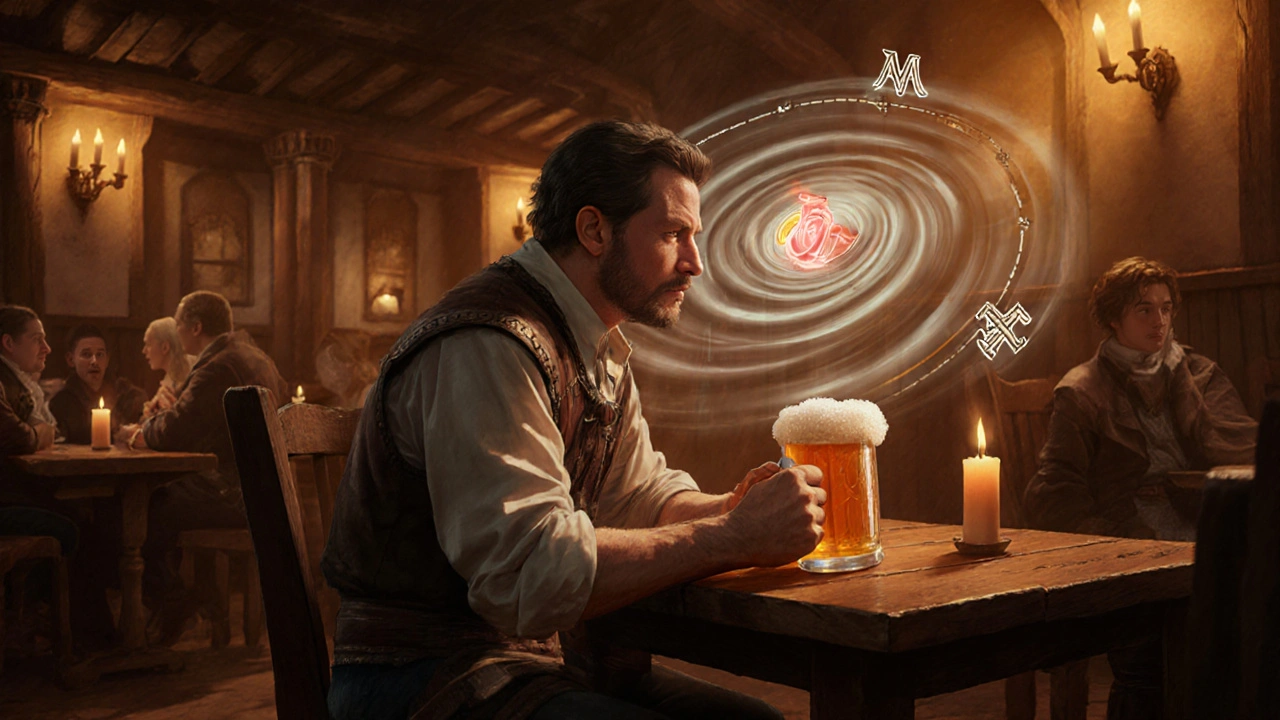Alcohol Dizziness: Causes, Risks & How to Manage It
When dealing with alcohol dizziness, a sense of light‑headedness or spinning that follows alcohol intake. Also known as drunken vertigo, it can appear after just one drink or many, depending on personal factors. Alcohol dizziness often catches people off guard because the feeling can start suddenly and the cause isn’t always obvious.
Key Factors Behind Alcohol‑Induced Dizziness
One of the biggest drivers is blood alcohol concentration, the amount of alcohol present in your bloodstream, usually expressed as a percentage. As BAC climbs, the brain’s balance centers receive less accurate signals, leading to the wobble you feel. A BAC of 0.05% might cause mild swaying, while 0.10% often brings the room‑spinning sensation. This relationship shows the predicate: higher BAC **causes** greater dizziness.
Alcohol also pulls water from your cells, so dehydration, a state where the body lacks enough fluid to maintain normal function becomes a silent partner in the dizziness equation. When you’re dehydrated, blood volume drops, blood pressure can fall, and the inner ear’s fluid balance gets upset – all three trigger vertigo‑like feelings. The triple: dehydration **exacerbates** alcohol‑induced dizziness.
Another hidden culprit is medication interactions, the way prescription or over‑the‑counter drugs combine with alcohol to amplify side effects. Antihistamines, sleep aids, and some antidepressants already make you drowsy; add alcohol and the brain’s alertness drops sharply. This synergy means even a low BAC can feel like a high one. Recognizing this link helps you avoid dangerous combos.
Vertigo itself, a specific type of dizziness where you feel the world is moving, often stems from inner‑ear problems like benign paroxysmal positional vertigo (BPPV). When alcohol irritates the ear’s fluid, it can trigger or worsen BPPV attacks. So vertigo, a sensation of spinning or movement when the head is still becomes another entity tightly linked to alcohol consumption. Understanding this helps you separate a simple woozy feeling from a true vertigo episode that may need medical attention.
Our library includes dozens of articles that dig into these exact factors. From a deep dive on how antihistamines like Olopatadine HCL interact with alcohol, to a guide on managing dizziness while taking oxcarbazepine, you’ll find evidence‑based tips that match the entities we’ve just covered. Whether you’re looking at flu antivirals, anxiety meds, or even dental pain relievers, the common thread is the impact on balance and how to stay safe.
To keep alcohol dizziness at bay, consider these quick steps: monitor your drinks and know your personal BAC limit, sip water between alcoholic beverages to fight dehydration, check medication labels for “do not drink” warnings, and avoid drinking on an empty stomach. If you’ve ever felt the room tilt after a night out, these habits can make the difference between a fun evening and a risky wobble. Below you’ll discover detailed guides, comparison charts, and safety checklists that break each of these points down further, giving you the tools to enjoy responsibly.
Explore how alcohol affects the vestibular system, why it triggers dizziness, key risk factors, and practical steps to decide if you should skip the drink.

 Pharmacology
Pharmacology